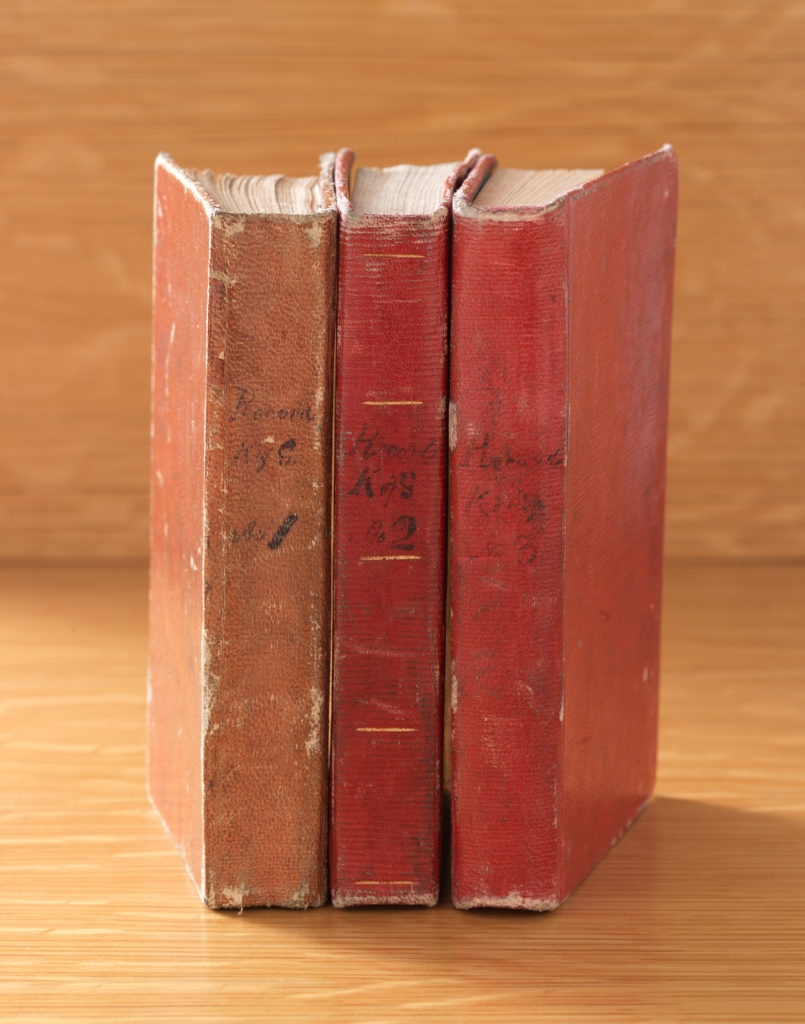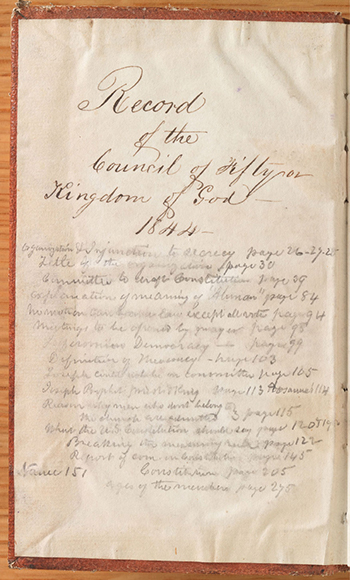Joseph Smith formed a council called the Council of Fifty. He had some advice about councils, which we might consider as we start the new year, and address the new LDS curriculum for Priesthood and Relief Society. One Sunday a month, everyone in the group be that priesthood or relief society — are supposed to meet as a council and not receive a lesson from the manual, or regurgitate someone else’s talk. It sounds like an interesting idea. I just recently started reading a book about The Council of Fifty.
The Council of Fifty was a diverse group — some were new converts, some had been members early on, and three were not even members of the church. This was the way Joseph wanted it. William Clayton, clerk for the council recorded Joseph saying that in the council, all should share their mind:
Pres Joseph said he wanted all the brethren to speak their minds on this subject and to say what was in their hearts whether good or bad. He did not want to be forever surrounded by a set of ‘dough heads’ and if they did not rise up and shake themselves and exercise themselves in discussing these important matters he should consider them nothing better than ‘dough heads.’ (Council of Fifty, Minutes, March 1844-Jan 1846, vol. 1, p 39, as quoted in Lost Teachings, Gerrit J. Dirkmaat in The Council of Fifty: What the Records Reveal about Mormon History)
Picture a lump of bread dough. If you have baked bread, you know what it looks like before it rises. This was the image Joseph was describing.
To tell you the truth, I do not share my ideas or my learning in the classrooms at church because people get ruffled, offended, and say they have never heard such a thing, or some retired GA takes the floor and everyone agrees with him. Enough said. (Last time I taught RS I was fired.) Now, I am not always correct in my thinking, but I am seeking and studying it out for myself — hence the need for my blog. Joseph wanted people to rise up and say their thoughts, to get thinking:
…the reason why men always failed to establish important measures was, because in their organization they never could agree to disagree long enough to select the pure gold from the dross by the process of investigation. (Ibid. p. 79)
One of the tasks of the council was to form a committee to draw up a constitution for the kingdom of God. (the Kingdom of God was not the Church of God according to Joseph.) He wanted the council to search out on their own, and then bring it to him for inspiration. Joseph said he did not want to be on the committee, because he did not want men to defer to him, but to study it out themselves and then bring it to him. Joseph was different than the others — he was a visionary man, and it was no secret that he had seen Christ and the Father.
Pres. J. Smith arose and said that the committee were first appointed to bring forth all the intelligence they could, and when their productions were presented to him he could correct the errors and fill the interstices where it was lacking. He had considered that a Theocracy consisted in our exercising all the intelligence of the council, and bringing forth all the light which dwells in the breast of every man, and then let God approve of the document & receiving the sanction of the council it becomes a law. Theocracy as he understands it is, for the people to get the voice of God and then acknowledge it, and see it executed. It is necessary for the council to exhaust their wisdom, and except they do they will never know but they are as wise as God himself and ambitious men will, like Lucifer think they are as wise as God and will try to lift themselves up and put their foot on the necks of others. (Ibid.)
Joseph Smith was teaching us that we need to seek learning on our own and not depend on our leaders to tell us what to do or what to believe.
From henceforth let it be understood that I shall not associate with any committee I want every man to get knowledge, search the laws of nations and get all the information they can. There can be no exceptions taken to anything that any man can say in this council. I don’t want any man ever to assent to any thing in this council and know it. Every man ought to study Geography, Governments and languages, so that he may be able to go forth to any nation and before any multitude with eloquence. (ibid.)
As Hugh Nibley shared,
This law of free agency and total individual responsibility has one great drawback: it requires that every member seeking to be properly led so live as if he or she was the Pres. – for each one is just as eligible (and therefore responsible) for receiving revelations as he is.
How much more easy, economical, and simple is the Roman Catholic system of identifying infallibility automatically with utterances given from a certain office. Above all, we do not need to ponder things in our own minds, to ask God for personal revelation, and to live so uprightly as to be able to receive it – that is a rough road. How much pleasanter to say simply: “Whatsoever pleases the Brethren is all right with me!”
But “this,” says B.Y., “is not pleasing in the sight of the Lord,” it is begging off from our solemn obligations in the name of loyalty, making a merit of evading the duties imposed on us by that free agency (ref)
You can read and study for yourself in the Minutes of the Council of Fifty. The book is hefty, but there is another book with excerpts that you can read as well.
Images from The Joseph Smith Papers.




